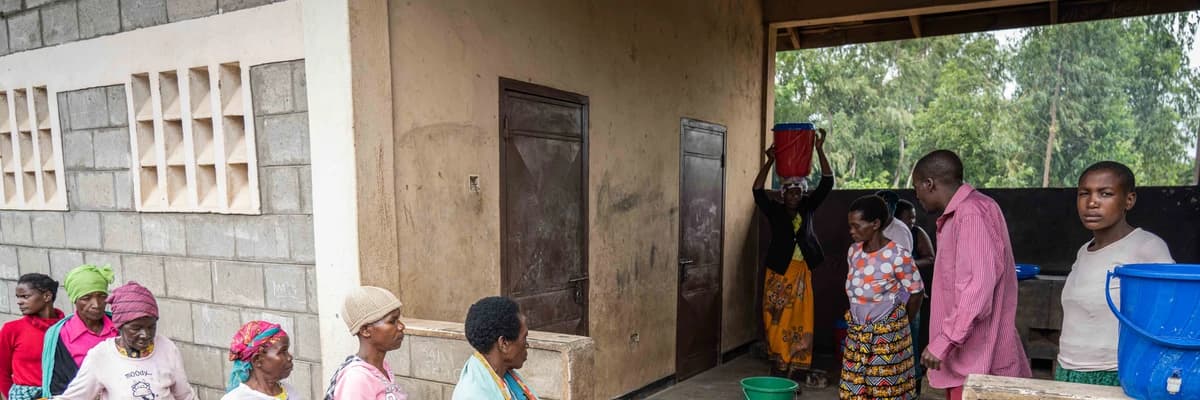YAOUNDÉ, Cameroon – In one of the world’s poorest countries, where hunger is a chronic challenge, Catholic bishops have launched a new project to help 4,500 families buy food with the support of the Scottish bishops.
The “Cash Transfer Project” of the bishops of Malawi draws on a $250,000 grant from the Scottish Catholic International Aid Fund (SCIAF), the official overseas relief and development agency of the Scottish church, and targets hunger victims from the country’s 10 districts whose situation was worsened by last year’s Cyclone Freddy.
“The grant will help the Church to implement a cash transfer initiative aimed at assisting hunger-stricken families to buy foodstuffs during this tough period,” Bishop Alfred Chaima told journalists in Zomba, Malawi, on Feb. 28.
Malawi is the world’s fourth poorest country, with 70 percent of its population living on less than $2.15 a day according to 2019 data. The Global Hunger Index, a tool that comprehensively measures and tracks hunger worldwide, ranks Malawi 88 out of 125 countries.
Just days after the country’s bishops issued a blistering critique of the government over its multiple failures to address the food security crisis, they announced the new project aimed at providing sort-term relief to people hit hardest by the crisis.
Members of the Episcopal Conference of Malawi say they will target about 4,500 households, with the project administered by the conference’s Catholic Development Commission. Each family will be given about $60 as a short-term solution to hunger. The current project is an addition to an earlier one in which 8,000 households benefited from relief items, including food.
The coordinator of the development commission said the initiative will benefit only those most affected, and noted that her organization will continue to “reach out to our various partners for more support to sustainably restore the livelihoods and strengthen resilience of affected households and communities.”
Last year, Malawi suffered one of its worst climate-related disasters, with Cyclone Freddy killing over 200 people and more than 2 million others displaced. Most of the affected areas were already suffering the impacts of cyclones Idai, Anna and Gombe which hit the country the previous year, with all this coming on the heels of a cholera outbreak and the COVID19 pandemic.
In a country where 85 percent of households engage in agriculture, these cyclical events have combined to make it harder to produce a strong harvest with any consistency.
Last year, the Famine Early Warning Systems Network, a watchdog group monitoring food insecurity created by the United States Agency for International Development, projected that Malawi would face acute food shortages between October 2023 to May 2024.
“Central and northern Malawi are generally likely to have a more stable food security situation supported by the anticipated nearly average main season harvest, but a few lakeside areas in the central region will face stressed and crisis outcomes due to severe damage from Tropical Cyclone Freddy and reduced cultivated land,” the report stated.
On Oct. 3 last year, the country’s bishops also warned about a looming hunger crisis.
“Malawi faces a looming hunger situation looking at the increasing pricing of the staple food, maize, on the market and the unavailability of the grain in some areas in the country,” members of the Catholic Commission for Justice and Peace in Malawi warned.
They called on the government to take urgent measures to address the food security problem, by among other things, producing much-needed commodities through irrigation in mega-farms. They underscored the need to have a healthy population because “a healthy population effectively and efficiently contributes to the development of the nation.”
Chaima expressed gratitude to Scotland for its support of the new anti-hunger project, noting that the bishops’ grant was made possible through public funding.
“The Scottish government was also very instrumental …We are deeply grateful on behalf of our people!
He underscored the need for people to live out their humanity, noting that despite the diversity in the world, “We are but one people created in the image of God … It is only prudent and just to take care of each other,” he said.















